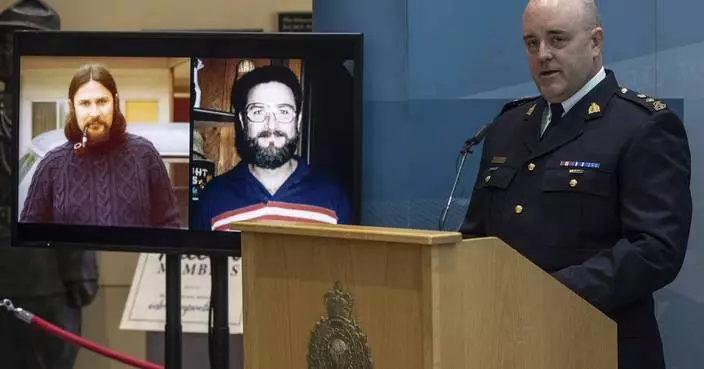After touring the National Lynching Memorial recently, former Colorado Gov. John Hickenlooper spoke of the "shame" he felt that some white people "kind of looked the other way during these lynching incidents."
Former U.S. Rep. Beto O'Rourke of Texas has acknowledged he "clearly had advantages" as a white man. Sen. Elizabeth Warren of Massachusetts has said that any struggle she faced as a single mom was much more challenging for black women. U.S. Rep. Tim Ryan of Ohio has talked about not knowing many black people when he was growing up. And Mayor Pete Buttigieg of South Bend, Indiana, recently said , "Any white candidate needs to show a level of consciousness around issues like white privilege."
Such candor surrounding race is becoming what Democratic strategist Joel Payne called a "woke litmus test" for any white person who wants to win the Democratic presidential nomination. In a field celebrated for its historic racial and gender diversity, white candidates are talking about systemic racism and white privilege to connect with voters of color and prove that America's racial divisions aren't lost on them.
"All candidates, especially nonethnic minority candidates, need to be fluent in the issues that matter most to black America — police brutality, criminal justice reform, reparations, social justice," said Payne, an alumnus of Hillary Clinton's 2016 presidential campaign.
White presidential candidates are among the contenders who will have another chance to connect with voters of color on Wednesday at the She the People forum in Houston. The event, which is focused on women of color, includes O'Rourke, Warren and Sen. Bernie Sanders of Vermont as speakers.
There are clear risks to Democrats who embrace talk of white privilege. Candidates could lose the moderate white men who live in suburbs and whose support will be necessary to defeat President Donald Trump. Republicans, including Trump, often blast Democrats for playing into "identity politics" when they talk about race.
Joe Biden's presidential bid, which is expected to launch on Thursday, could test whether it's politically wise for candidates to speak so openly about race. Although he has positioned himself as a champion of racial equality, the former vice president is expected to wage a campaign aimed at winning back the working-class white voters who swung to Trump in 2016.
Given his decades in public life, Biden faces unique vulnerabilities on race that he will have to address early on in his campaign. He will likely face questions about his opposition to busing during the desegregation era. And he will face scrutiny for his role in Supreme Court confirmation hearings that undermined Anita Hill's credibility nearly three decades ago along with his support of the 1994 crime bill that contributed to the racial disparities in prison sentencing at the center of the mass incarceration debate.
Not all candidates have talked so personally about race. Sanders, who struggled to win black voters in 2016, hasn't talked in depth about whether he has been treated better by society because he's a white man.
Asked recently whether she has experienced privilege as a white person, Democratic candidate Kirsten Gillibrand of New York said, "I guess I don't see it that way." The U.S. senator from New York acknowledged persistent gender and racial bias. But pointing to her legislative accomplishments, she said, "A lot of that success was actually because I'm a woman."
"I have great skills and listening, of finding common ground, of bringing people together," she said. "I think those are some of my superpowers."
Democratic strategist Jamal Simmons cautioned white candidates against "overdoing" talk about privilege and identity. But he said those who are turned off by such rhetoric "are probably not reliable voters for Democrats" in a general election.
The conversations about white privilege are an acknowledgement of the role black voters will play in the Democratic primary next year. For one, the primary features several candidates of color, including Sens. Kamala Harris of California, Cory Booker of New Jersey and former Obama Cabinet secretary Julián Castro. Each of them will make hard pitches to diverse voters and are also attending She the People.
The large size of the Democratic field and the way the primaries will unfold could also put voters of color in a more powerful position. After majority-white states Iowa and New Hampshire vote next year, the contest will swiftly move to more diverse places like Nevada, South Carolina, California, Texas and Georgia.
In a recent interview, Buttigieg said being "pro-racial justice should not be skin off the back of any white voter."
"There's certainly an environment where sometimes these ideas are pitted against each other, where it's suggested, for example, that connecting with white working-class voters somehow means that you have to walk away from our commitment to racial justice — but our commitment to racial justice is part of the bedrock of the moral authority of the Democratic Party," Buttigieg said.
But when asked whether he had experienced white privilege, he said that "part of privilege is not being very conscious of it, right?"
He added: "You're much more conscious when you're at a disadvantage than ... when you are on the beneficial side of a bias. But there's no question that that's a factor that has impacted people in many different ways."
Rashad Robinson, executive director of the online civil rights organization Color of Change, said candidates must go further than being comfortable discussing white identity. They must be able to translate privilege into policies that address inequality, he said.
"I don't need you simply talking about these issues," said Robinson, who has talked to several 2020 Democrats. "I need you using your power to act on them. That, for me, is going to be the measure and the test."
Whack is The Associated Press' national writer on race and ethnicity. Follow her work on Twitter at http://www.twitter.com/emarvelous.
Associated Press writer Alexandra Jaffe in Des Moines, Iowa, contributed to this report.
SAN FRANCISCO (AP) — The man who broke into the home of then-House Speaker Nancy Pelosi seeking to hold her hostage and bludgeoned her husband with a hammer was sentenced Friday to 30 years in prison.
But prosecutors later filed a motion saying the court failed to offer the defendant, David DePape, an opportunity “to speak or present any information to mitigate the sentence" as required by federal rule. They asked the court to reopen the sentencing portion to allow him that option. The court did not immediately respond.
A jury found DePape, 44, guilty in November of attempted kidnapping of a federal official and assault on the immediate family member of a federal official. Prosecutors had asked for a 40-year prison term.
The attack on Paul Pelosi, who was 82 at the time, was captured on police body camera video just days before the 2022 midterm elections and sent shockwaves through the political world. He suffered two head wounds including a skull fracture that was mended with plates and screws he will have for the rest of his life. His right arm and hand were also injured.
Judge Jacqueline Scott Corley sentenced DePape to 20 years for attempted kidnapping and 30 years for the assault, the maximum for both counts. The sentences will run concurrently. He also was given credit for the 18 months he has been in custody.
In its afternoon motion to the court, the U.S. attorney's office said DePape was not given the opportunity by the court to speak before being sentenced and that could present an issue.
DePape's defense, however, said they opposed bringing back their client to court and filed a notice of appeal, according to the filing. Prosecutors and defense counsel did not immediately respond to emails seeking comment late Friday.
The court has 14 days to correct a sentence resulting from error, prosecutors said.
DePape stood silently as he was sentenced and looked down at times. His public defense attorneys had asked the judge to sentence him to 14 years, pointing out that he was going through a difficult period in his life at the time of the attack, had undiagnosed mental health issues and had no prior criminal history.
At trial, DePape testified that he had planned to wear an inflatable unicorn costume and record his interrogation of the Democratic speaker, who was not at her San Francisco home at the time of the attack, to upload it online.
Ahead of the sentencing, one of his defense attorneys, Angela Chuang, told the judge to consider the prison terms being given to those who participated in the Jan. 6, 2021, attack on the Capitol.
"The five most serious sentences for people who were convicted of seditious conspiracy, of literally conspiring to overthrow the government, range from 15 to 22 years," Chuang said.
Corley said the Jan. 6 analogy didn’t adequately reflect the seriousness of breaking into an official's private home. The attack may have a chilling effect on people seeking office in the future, she said.
“They have to think not only, ‘Am I willing to take that risk myself, but am I willing to risk my spouse, my children, my grandchildren?’” the judge said.
Prosecutors asked for the maximum sentence on each count and for DePape to serve 10 years concurrently, giving him a 40-year prison term.
Before sentencing, Christine Pelosi read her father and mother's victim statements, explaining how the violent attack changed their lives. In Paul Pelosi's statement, he explained that 18 months after the attack, he still gets headaches and vertigo and has fainted and fallen twice at home.
“Once you are attacked in such a public and political manner, with such threatening language, you always have to fear a copycat,” Nancy Pelosi said in her statement. “When I encourage people, especially women to consider running for office, physical threats to the family should not even be a factor, but they are.”
Both Paul and Nancy Pelosi said there are still bloodstains on the floor and other signs of the break-in at their home.
“Our home remains a heartbreaking crime scene,” Nancy Pelosi wrote.
DePape admitted during trial testimony that he broke into the Pelosis’ home Oct. 28, 2022, intending to hold the speaker hostage and “break her kneecaps” if she lied to him. He also admitted to bludgeoning Paul Pelosi with a hammer after police showed up, saying his plan to end what he viewed as government corruption was unraveling.
Defense attorneys argued DePape was motivated by his political beliefs, not because he wanted to interfere with Nancy Pelosi’s official duties as a member of Congress, making the charges against him invalid.
Chuang, one of his attorneys, said during closing arguments that DePape was estranged from his family and was caught up in conspiracy theories.
Sky Gonzalez, David DePape’s son, told reporters outside court the 30-year prison term was equivalent to getting a death sentence.
“I think that’s quite sad. I think that’s a really long time, because if you think about it, he’s already nearly 50. Basically, it’s just a death sentence," Gonzalez said before repeating the same conspiracy theories his father wrote about before the attack.
At trial DePape, a Canadian who moved to the U.S. more than 20 years ago, testified that he believed news outlets repeatedly lied about former President Donald Trump. In rants posted on a blog and online forum that were taken down after his arrest, DePape echoed the baseless, right-wing QAnon conspiracy theory that claims a cabal of devil-worshipping pedophiles runs the U.S. government.
Prosecutors said he had rope and zip ties with him, and detectives found body cameras, a computer and a tablet.
Paul Pelosi recalled at the trial how he was awakened by a large man bursting into the bedroom and asking, “Where’s Nancy?” He said that when he responded that his wife was in Washington, DePape said he would tie him up while they waited for her.
“It was a tremendous sense of shock to recognize that somebody had broken into the house, and looking at him and looking at the hammer and the ties, I recognized that I was in serious danger, so I tried to stay as calm as possible,” Pelosi told jurors.
DePape also is charged in state court with assault with a deadly weapon, elder abuse, residential burglary and other felonies. Jury selection in that trial is expected to start Wednesday.
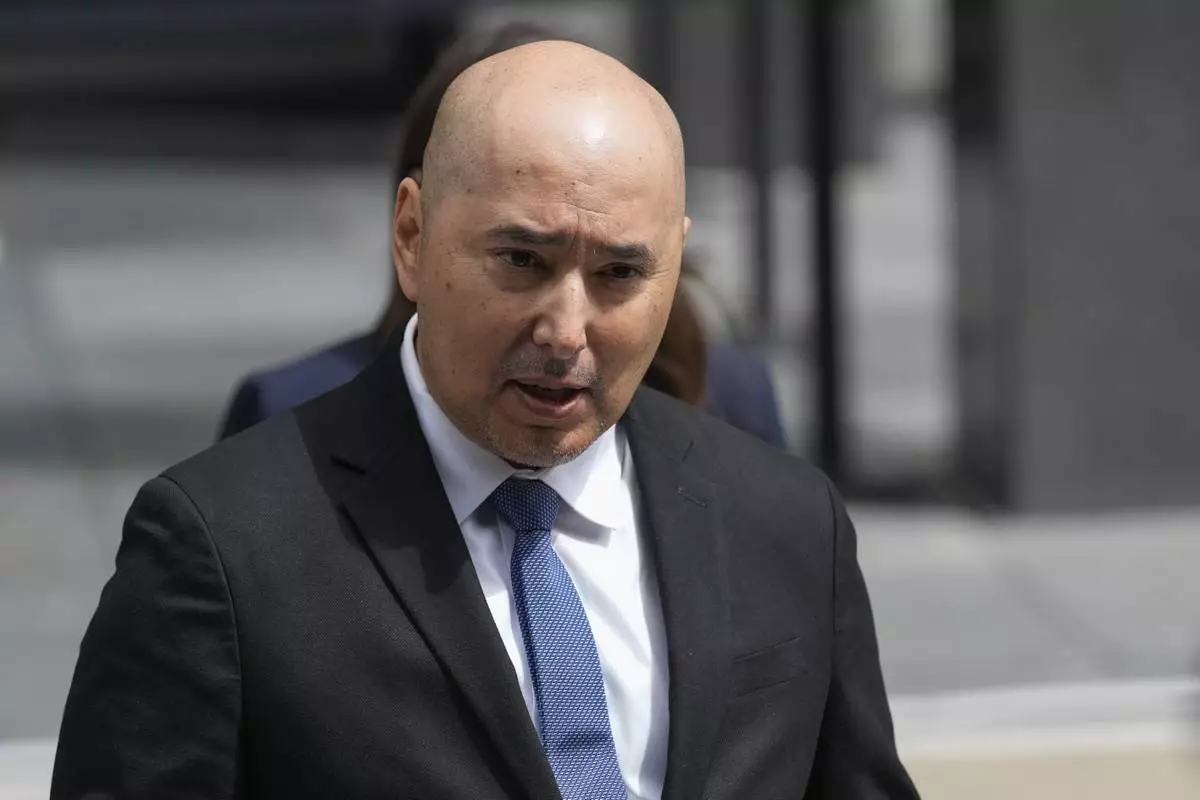
Sergio Lopez, acting assistant agent in charge of the FBI, speaks to reporters after the sentencing of David DePape in federal court Friday, May 17, 2024, in San Francisco. DePape was found guilty last November of attempted kidnapping of a federal official and assault on Paul Pelosi, husband of former U.S. House Speaker Nancy Pelosi. (AP Photo/Godofredo A. Vásquez)
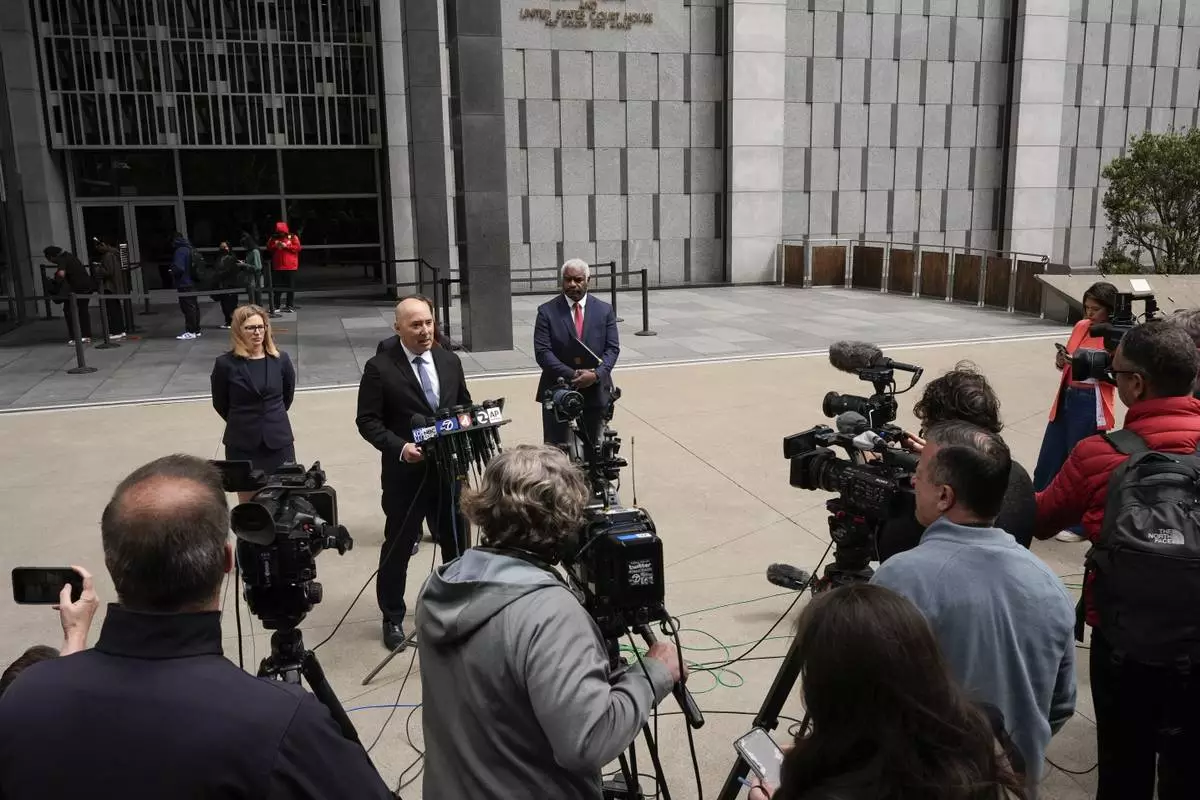
Sergio Lopez, acting assistant agent in charge of the FBI, speaks to reporters after the sentencing of David DePape in federal court Friday, May 17, 2024, in San Francisco. DePape was found guilty last November of attempted kidnapping of a federal official and assault on Paul Pelosi, husband of former U.S. House Speaker Nancy Pelosi. (AP Photo/Godofredo A. Vásquez)
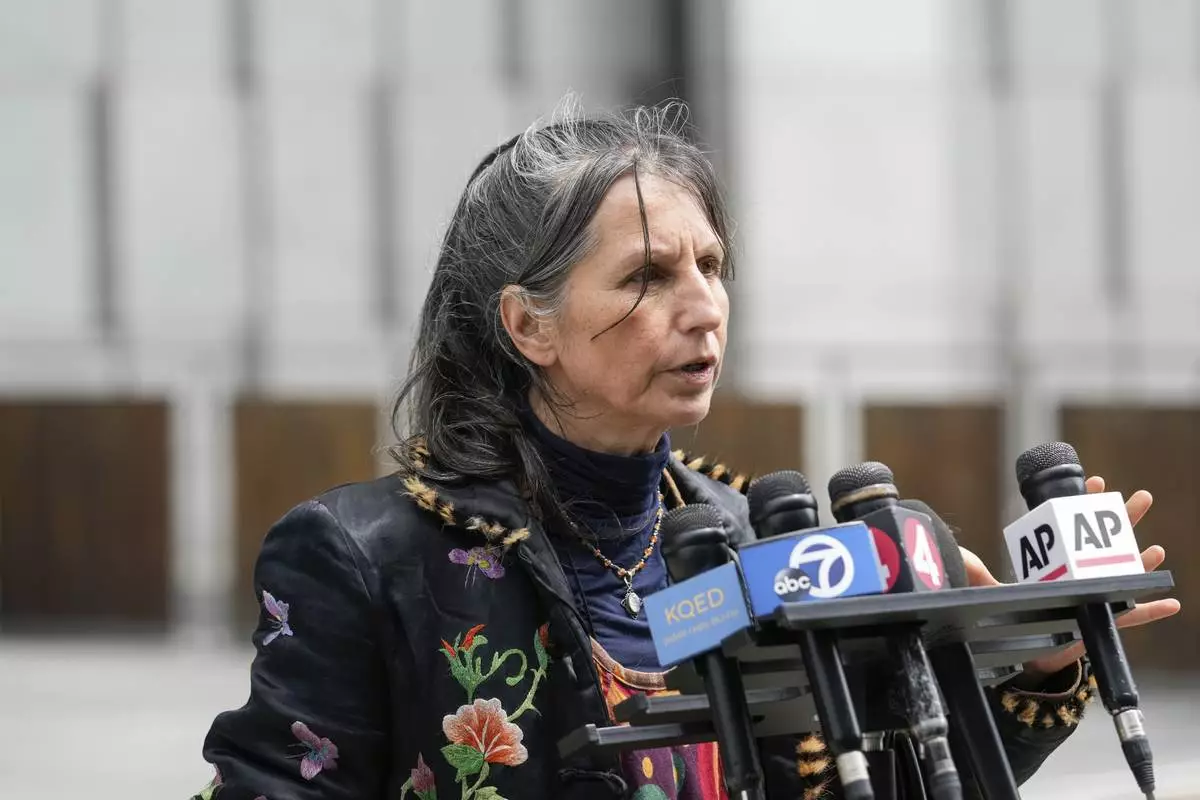
Gypsy Taub, ex-partner of David DePape, speaks to reporters after DePape's sentencing in federal court Friday, May 17, 2024, in San Francisco. He was found guilty last November of attempted kidnapping of a federal official and assault on Paul Pelosi, husband of former U.S. House Speaker Nancy Pelosi. (AP Photo/Godofredo A. Vásquez)

FILE - Paul Pelosi attends a portrait unveiling ceremony for his wife, Speaker of the House Nancy Pelosi, D-Calif., in Statuary Hall at the Capitol in Washington, Dec. 14, 2022. David DePape who was convicted last year in federal court of breaking into former House Speaker Nancy Pelosi's San Francisco home will be sentenced in federal court Friday, May 16, 2024. (AP Photo/J. Scott Applewhite, File)

FILE – David DePape is seen, Dec. 13, 2013, in Berkeley, Calif. DePape convicted of attempting to kidnap then-House Speaker Nancy Pelosi and attacking her husband with a hammer is set to be sentenced in federal court Friday, May 17, 2024. (Michael Short/San Francisco Chronicle via AP, File)
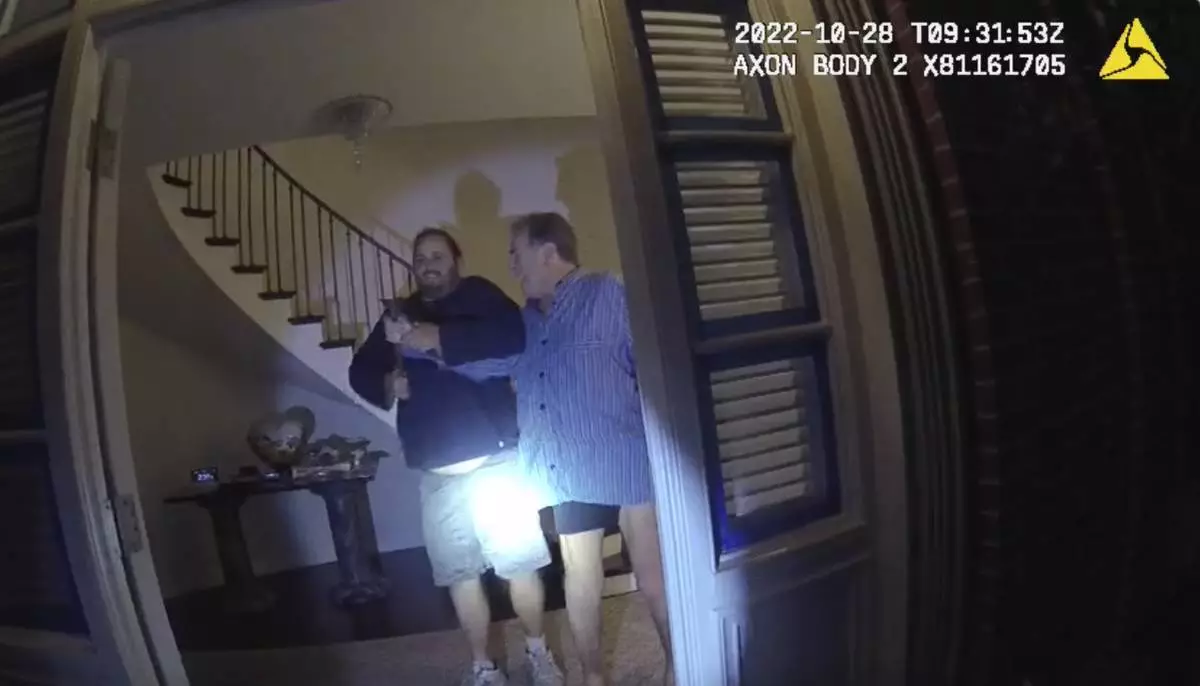
FILE - In this image taken from San Francisco Police Department body-camera video, the husband of former U.S. House Speaker Nancy Pelosi, Paul Pelosi, right, fights for control of a hammer with his assailant David DePape during a brutal attack in the couple's San Francisco home, on Oct. 28, 2022. DePape convicted of attempting to kidnap then-House Speaker Nancy Pelosi and attacking her husband with a hammer is set to be sentenced in federal court Friday, May 17, 2024. (San Francisco Police Department via AP, File)












